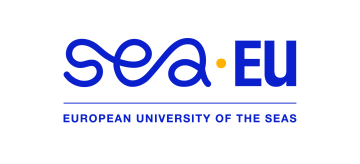University of Malta
Malta Geomorphology Research Group
MGRG is active in promoting multidisciplinary research and related events about geomorphology in various dimensions. The group over the years has managed to produce a number of research initiatives and publications related to the study of coastal landforms, such as landslides, karst, shore platforms, shingle beaches, bouldered coasts, natural hazards and geoheritage. The group collaborates with a number of other geomorphology groups in Italy and UK.
Seismic Monitoring Research Group & Geophysics Laboratory
Manages the Malta Seismic Network and Virtual Mediterranean Network, with monitoring and rapid evaluation of earthquakes. Research focusses on seismicity, seismic source processes in Central Mediterranean, offshore fault systems, geodynamic processes and seismic hazard; integrating seismicity monitoring with real-time sea-level measurements for rapid assessment, modelling and forecast of earthquake-generated tsunami; site-response studies; dynamics and evolution of coastal landforms, in particular cliff and beach environments, and associated marine/meteo-related risks.
Ecological Assessment and Monitoring
Ecological assessment and monitoring; with particular emphasis on themes concerning marine ecology, including ecology of seagrass and algal habitats; and environmental impacts of aquaculture, coastal development and other anthropogenic activities.
Institute for Sustainable Energy
Primary offshore research relates to the development of offhsore solar platform via project Solaqua . We are also involved in collaboration with meciahnical Engineering in Floating Offshore Wind turbines and in the past collaborated with PO Res Grp on Wave energy research. (Project Blue Ocean Energy)
Marine Ecology Research Group (MERG)
MERG’s research work focuses on: (1) characterisation of benthic habitats; (2) monitoring of changes to local marine life resulting from ongoing environmental changes (e.g. warming sea temperatures, species range expansions, invasion by non-indigenous species); (3) assessing the services provided by habitats and ecosystems (i.e. their resource potential); (4) monitoring the effects of human impacts on these habitats; (5) evaluating the conservation status of local coastal and marine living resources.
The Edward de Bono Institute for the Design & Development of Thinking
Foresight and future studies; stakeholder participation in policy design and implementation; the role of foresight in smart specialisation; sustainability innovation and its management.
Martime Enginnering - VENTuRE
Under the European Commission’s maritime vision, the IMO, regulatory bodies and industries propose preventative measures to build a sustainable and cleaner environment emphasising on ‘energy efficiency’ to lower CO2 emissions. Malta's strategic location, infrastructure and experience results in a globally respected Maltese flag registry (sixth globally, first ranking flag on the European level).
Conservation Biology Research Group
Institute of Earth Systems
Dr Charles Galdies is a senior lecturer with the Division of Environmental Management and Planning within the Institute of Earth Systems. He has received his Ph.D. in Remote Sensing and GIS from Durham University (UK) in 2005. He studied ways to improve small-scale weather and ocean forecasting in the central Mediterranean region using novel remote sensing observations of the ocean and atmosphere. Dr Galdies previously served as Chief Meteorological Officer of the Malta Meteorological Office from 2007 to 2011, and Deputy Executive Director of the International Ocean Institute Headquarters.
Pagination
- Previous page
- Page 5
- Next page

